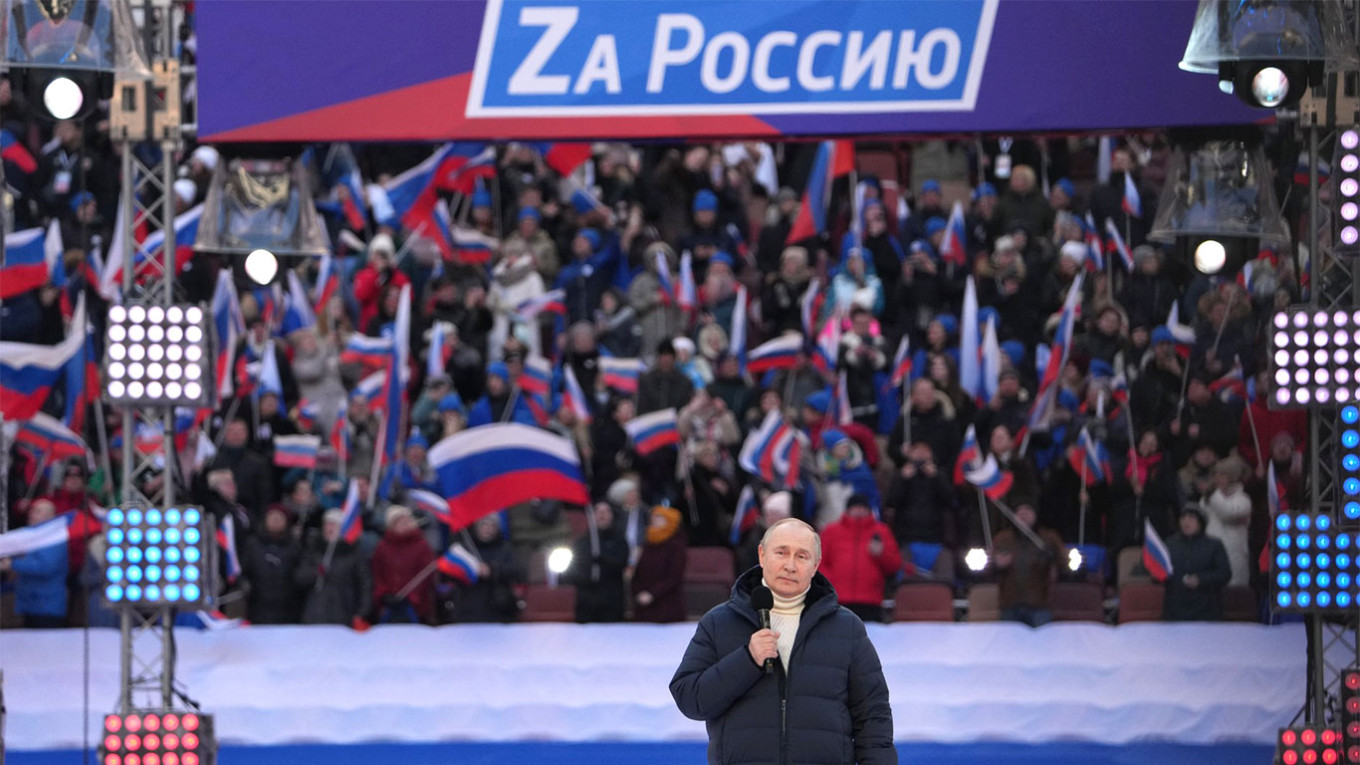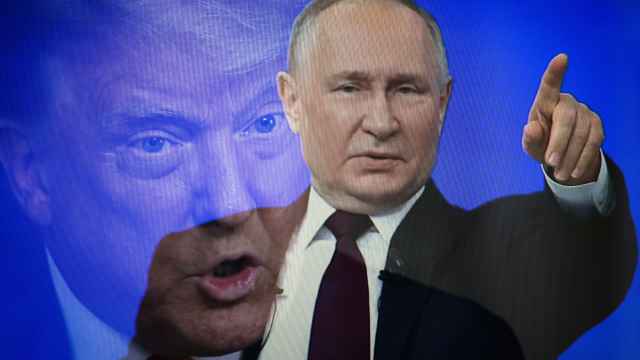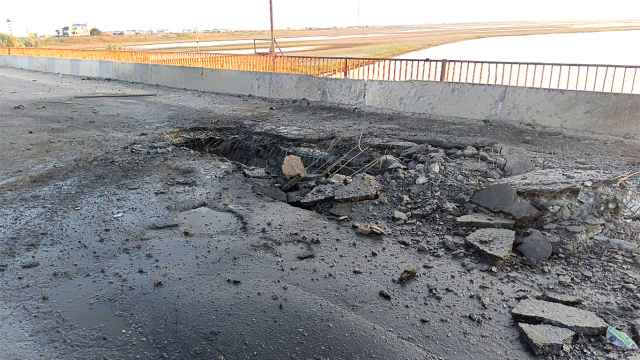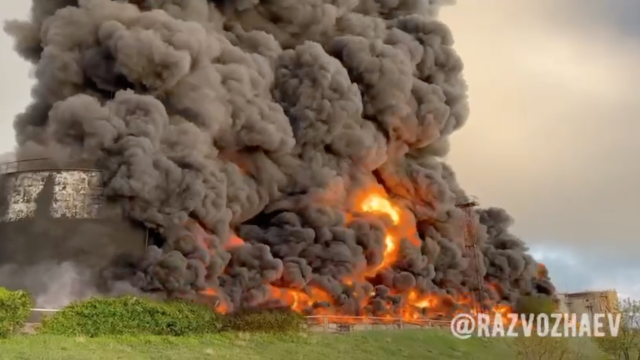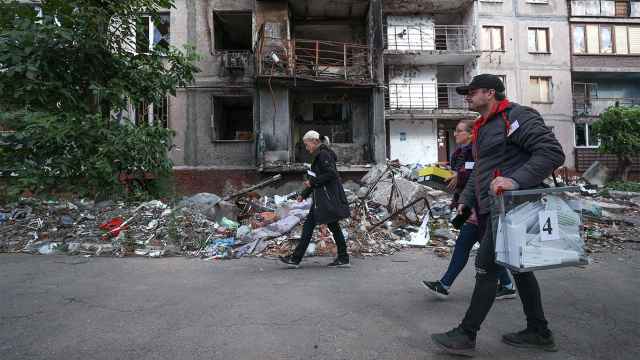In Russia, the anniversary of the 2014 annexation of Crimea has traditionally been marked with nationwide festivities including concerts, fireworks and speeches by top officials — but not this year.
While the Kremlin was reportedly planning to go ahead with the usual lavish celebrations this weekend, they pulled the plug at the last moment.
Instead, President Vladimir Putin made a surprise appearance in the Crimean city of Sevastopol and his first visit to the Ukrainian territory that Moscow seized following its full-scale invasion of its neighbor.
“The war has gone on for more than a year and has changed everything,” Oleg Ignatov, a senior analyst at International Crisis Group, told The Moscow Times.
“The Kremlin understands this.”
At the time, the largely bloodless annexation of Crimea in 2014 was trumpeted by the Kremlin as a major policy success and sent Putin’s popularity soaring. It subsequently became an ideological cornerstone of the regime.
It has traditionally been marked by an annual concert and rally including pro-Kremlin pop stars, thousands of spectators and a rare public appearance by Putin himself.
Preparations for such an event this year had been taking place since the end of February, according to a report by Sirena, a Telegram channel run by jailed Kremlin critic Alexei Navalny’s Anti-Corruption Foundation.
However, the Kremlin had a last-minute change of heart and canceled the event, the Vedomosti business daily reported last week, citing a source close to the Kremlin.
Perhaps most significantly, this year’s anniversary did not include a public appearance by Putin in front of tens of thousands of supporters.
Instead, Putin made a brief appearance in the Crimean city of Sevastopol on Saturday, where, accompanied by influential cleric Father Tikhon and the local governor, he visited a children’s center.
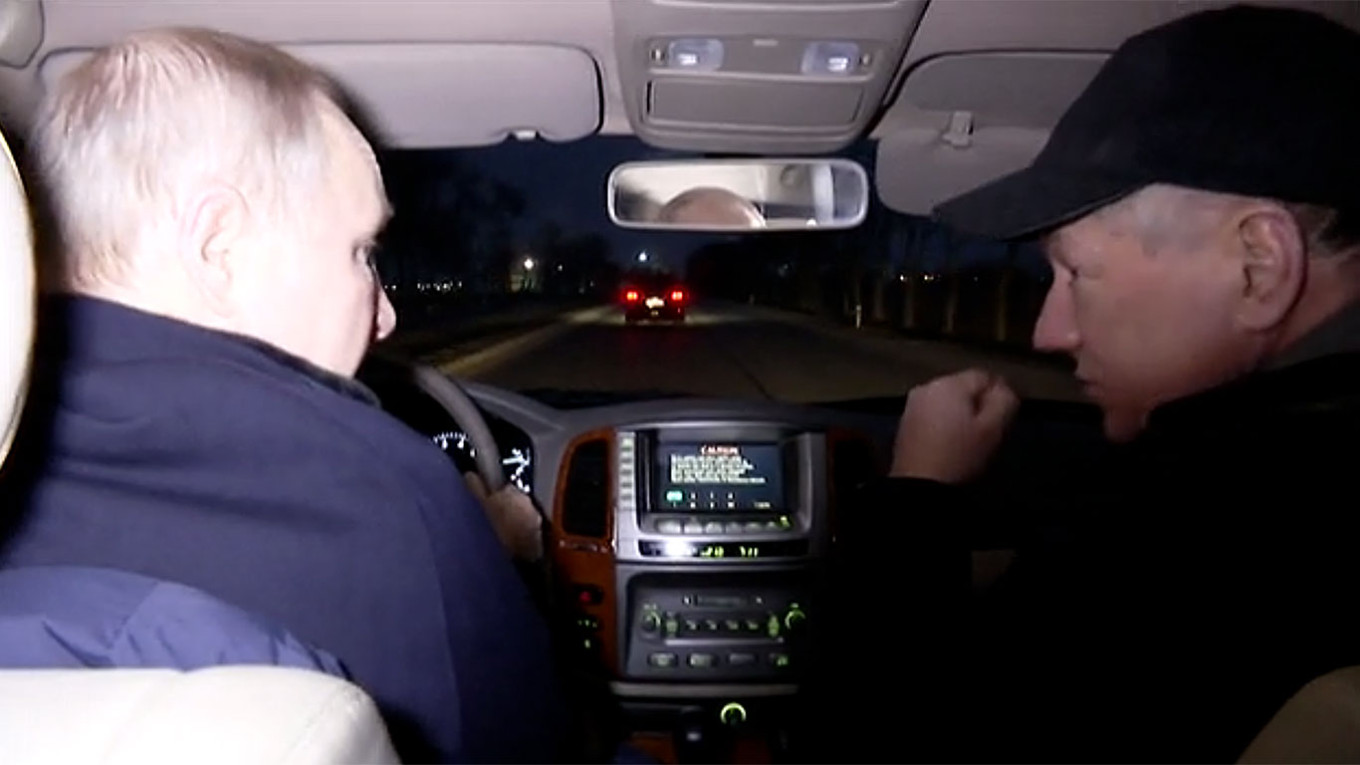
Later, under cover of night, the Russian president, surrounded by bodyguards, made a surprise visit to the port city of Mariupol, which was razed to the ground last year in a months-long battle between the Russian Armed Forces and a much smaller Ukrainian force.
The visits were condemned by both Kyiv and Western countries.
Much of the international community continues to consider Crimea as part of Ukraine, while Russia’s September annexation of four other Ukrainian regions was condemned by the United Nations and has been recognized by just a handful of countries.
Russian media reports Monday suggested that video footage of the event showed an onlooker shouting “This is all fake, it’s all for show!” as Putin spoke with what the Kremlin said were local Mariupol residents.
Either way, the Kremlin appeared to take a decision that the ninth anniversary of the annexation should receive much less media coverage than in previous years.
Andrei Kolesnikov, an expert on Russian politics at the Carnegie Endowment for International Peace, told The Moscow Times that the annexation’s anniversary has been permanently overshadowed by the ongoing fighting in Ukraine.
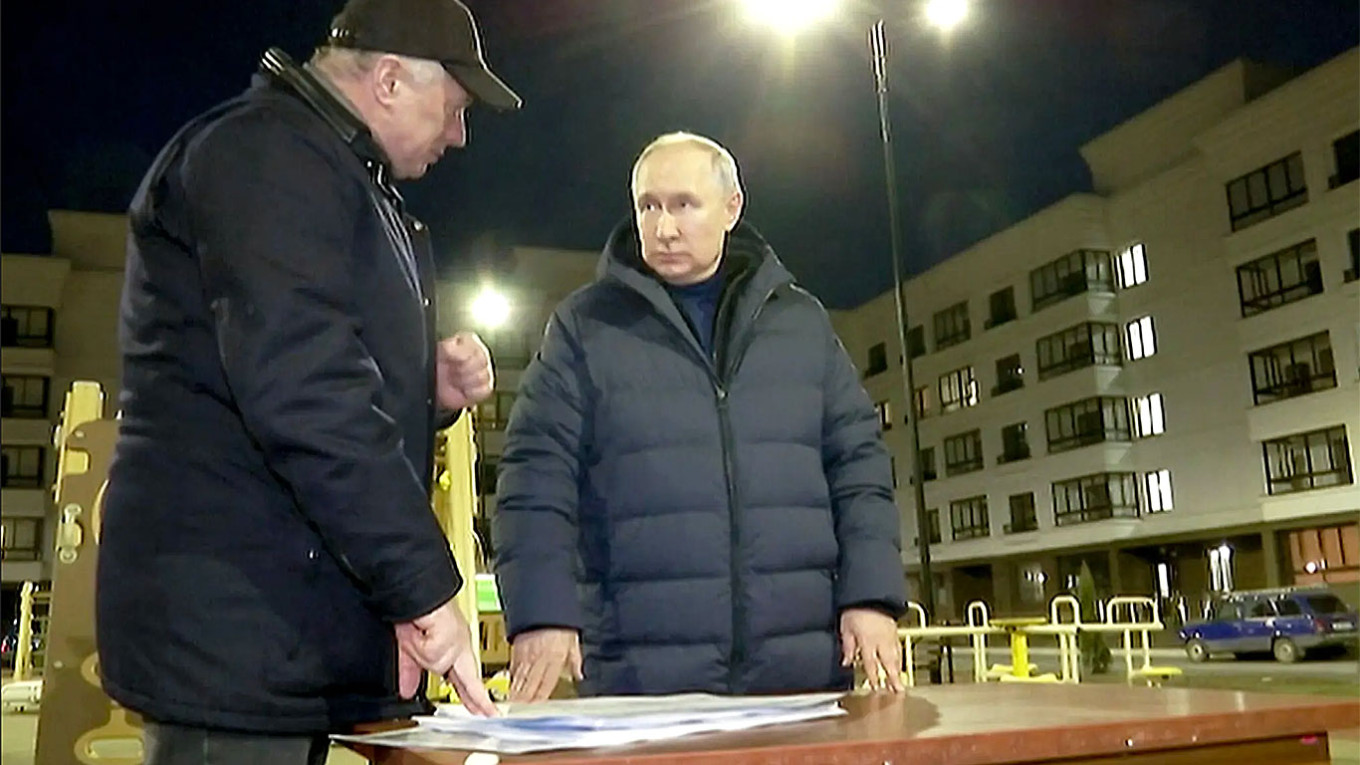
At last year’s anniversary event in Moscow’s Luzhniki Stadium, Putin quoted from the Bible in a speech before tens of thousands in which he said the invasion of Ukraine, underway for nearly a month at that point, was necessary to stop a “genocide” being carried out by Kyiv.
Marking the anniversary in 2021 at the same stadium, the president spoke of historical justice and his love for the motherland.
The very first such concert and rally was held on Red Square on March 18, 2014, the day of Russia's annexation of Crimea.
“We have done a lot together, but we will need to do even more and complete a lot of tasks. But I know — I am sure — that we will overcome everything and solve everything because we are together,” Putin told the assembled crowds that day.
The annexation of Crimea was a turning point for the Kremlin — and for Putin personally — both in domestic politics and in foreign policy, according to analyst Oleg Ignatov.
It directly preceded Russia’s foment of an uprising in eastern Ukraine, which led to thousands of deaths and the establishment of Russian-backed rebel governments.
Putin's popularity had been declining ahead of the seizure of the Black Sea peninsula in 2014.
But, after the annexation, his approval rating skyrocketed to as high as 80%.
Many political experts have characterized the era since 2014 as a "Crimean consensus" in which the Russian political elite rallied around the Kremlin’s land grab in Ukraine.
This period has also been dubbed the “golden age of Russian authoritarianism” in reference to the increased clampdown on independent activists and journalists seen in the years since.
While observers and analysts have proclaimed the end of the “Crimean consensus” several times, according to Ignatov, this period decisively came to an end with the full-scale invasion of Ukraine on Feb. 24, 2022.
Among many other consequences, the fighting means lavish anniversary events are no longer as significant an ideological marker for the regime as they once were.
"The celebration itself has lost its gravity,” said Ignatov.
A Message from The Moscow Times:
Dear readers,
We are facing unprecedented challenges. Russia's Prosecutor General's Office has designated The Moscow Times as an "undesirable" organization, criminalizing our work and putting our staff at risk of prosecution. This follows our earlier unjust labeling as a "foreign agent."
These actions are direct attempts to silence independent journalism in Russia. The authorities claim our work "discredits the decisions of the Russian leadership." We see things differently: we strive to provide accurate, unbiased reporting on Russia.
We, the journalists of The Moscow Times, refuse to be silenced. But to continue our work, we need your help.
Your support, no matter how small, makes a world of difference. If you can, please support us monthly starting from just $2. It's quick to set up, and every contribution makes a significant impact.
By supporting The Moscow Times, you're defending open, independent journalism in the face of repression. Thank you for standing with us.
Remind me later.



